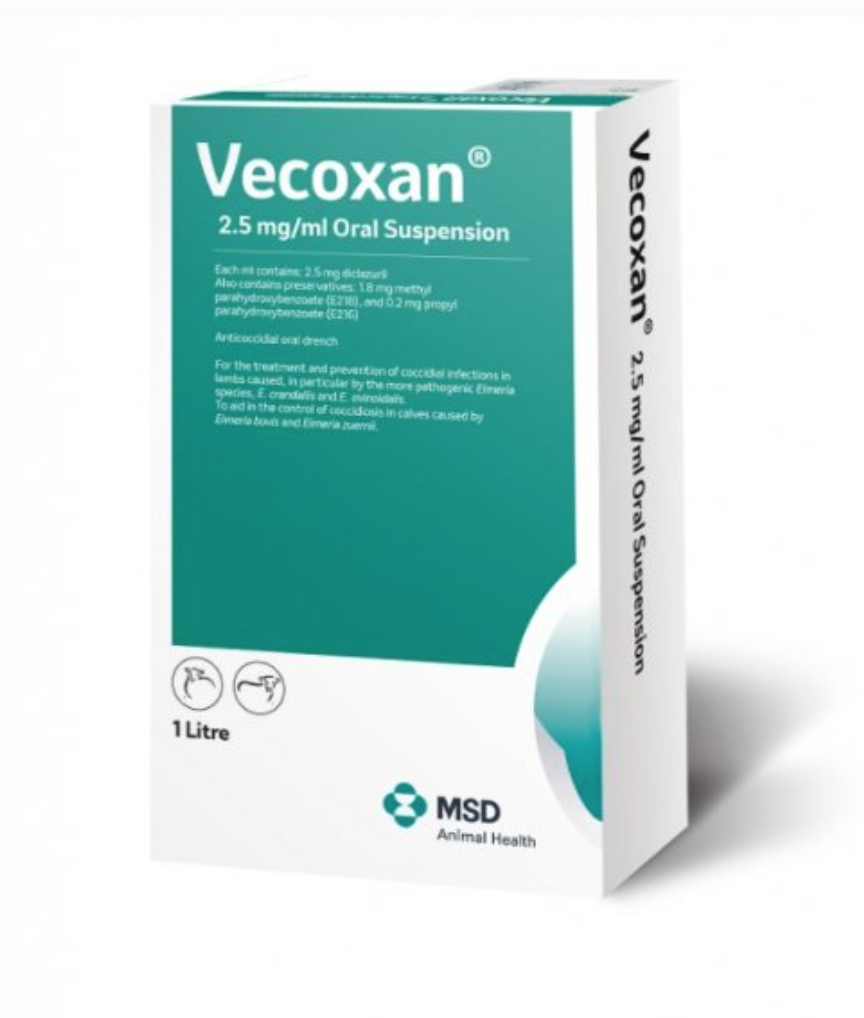Vexocan suspension is a coccidiosis treatment and prevention of coccidial infections in lambs and calves. White aqueous oral suspension containing diclazuril 0.25% w/v
Dosage & Administration
Administration:
- Vecoxan oral suspension should be administered with a drenching gun.
- Appropriately graduated drenching equipment should be used to allow accurate dosing. This is particularly important when administering small volumes.
Dosage:
Lambs:
- Therapeutic use 1 ml Vecoxan per 2.5 kg bodyweight, as a single administration.
- Preventative use 1 ml Vecoxan per 2.5 kg body weight at about 4-6 weeks of age at the time that coccidiosis can normally be expected on the farm.
- Under conditions of high infection pressure, a second treatment may be indicated about 3 weeks after the first dosing.
Calves:
- As an aid in the control of coccidiosis 1 ml Vecoxan per 2.5 kg body weight, administered as a single dose, 14 days after moving into a potentially high risk environment.
- If a satisfactory response is not observed, then further advice should be sought from your veterinary surgeon and the cause of the condition should be reviewed.
- It is good practice to ensure the cleanliness of calf housing.
Vexocan suspension is a coccidiosis treatment and prevention of coccidial infections in lambs and calves. White aqueous oral suspension containing diclazuril 0.25% w/v
Dosage & Administration
Administration:
- Vecoxan oral suspension should be administered with a drenching gun.
- Appropriately graduated drenching equipment should be used to allow accurate dosing. This is particularly important when administering small volumes.
Dosage:
Lambs:
- Therapeutic use 1 ml Vecoxan per 2.5 kg bodyweight, as a single administration.
- Preventative use 1 ml Vecoxan per 2.5 kg body weight at about 4-6 weeks of age at the time that coccidiosis can normally be expected on the farm.
- Under conditions of high infection pressure, a second treatment may be indicated about 3 weeks after the first dosing.
Calves:
- As an aid in the control of coccidiosis 1 ml Vecoxan per 2.5 kg body weight, administered as a single dose, 14 days after moving into a potentially high risk environment.
- If a satisfactory response is not observed, then further advice should be sought from your veterinary surgeon and the cause of the condition should be reviewed.
- It is good practice to ensure the cleanliness of calf housing.
Recently Viewed
-
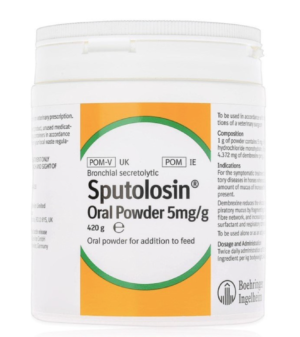
Sputolosin Powder For Horses
£56.99View Product -
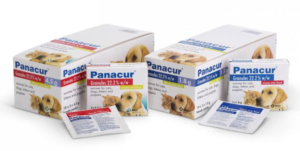
Panacur Worming Granules for Dogs and Cats
Price range: £1.29 through £3.59View Product This product has multiple variants. The options may be chosen on the product page -
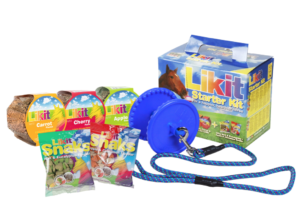
Likit Starter Kit
Price range: £23.95 through £23.99View Product This product has multiple variants. The options may be chosen on the product page -
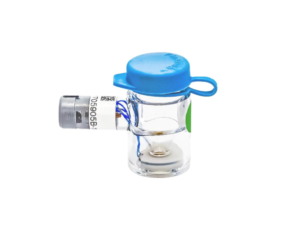
Flexineb Replacement Medication Cup
Price range: £99.99 through £256.99View Product This product has multiple variants. The options may be chosen on the product page -
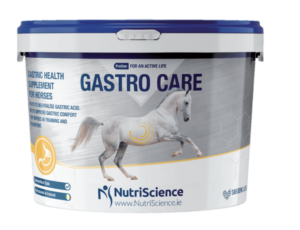
GastroCare Supplement for Horses
£97.99View Product -
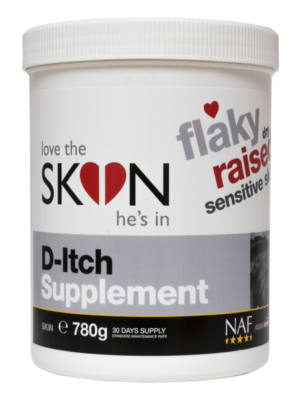
NAF Love The Skin He’s In D-Itch Supplement 780g
£31.99View Product -
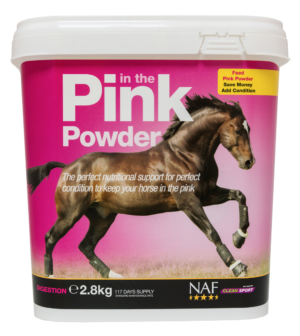
NAF In The Pink Powder
Price range: £22.79 through £221.09View Product This product has multiple variants. The options may be chosen on the product page -
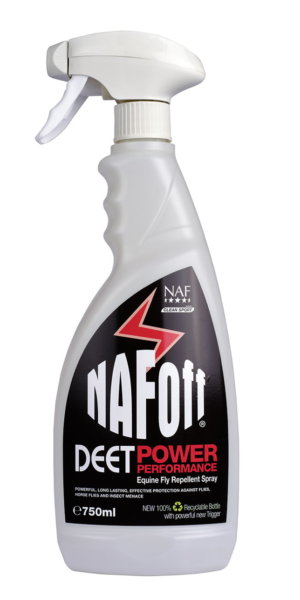
NAF Off Deet Power Performance Fly Spray For Horses
Price range: £19.99 through £63.99View Product This product has multiple variants. The options may be chosen on the product page -
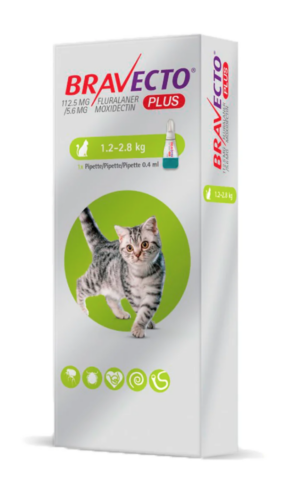
Bravecto Plus for Cats
Price range: £22.99 through £26.99View Product This product has multiple variants. The options may be chosen on the product page -
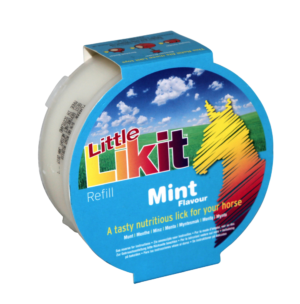
Likit Little Likit Treats Refill 250g
£4.50View Product This product has multiple variants. The options may be chosen on the product page

